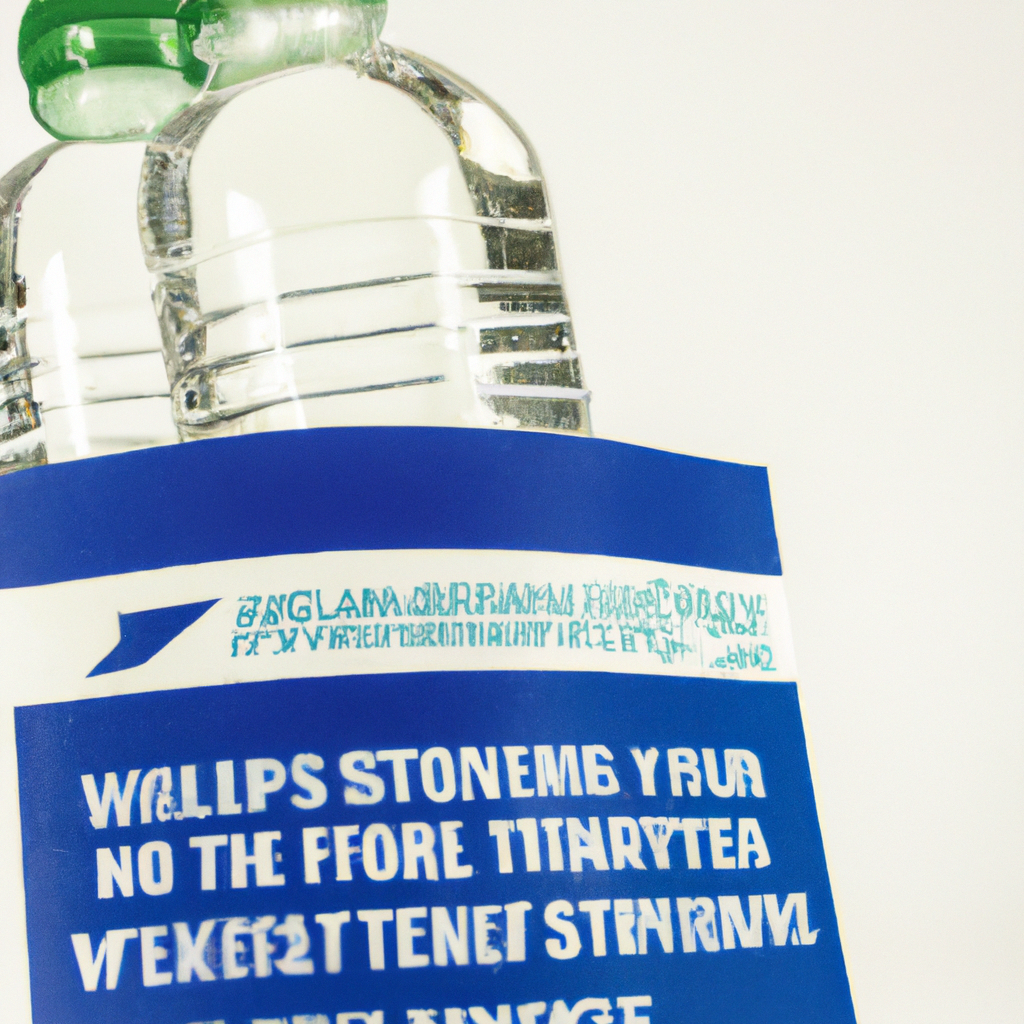We all experience stress at some point in our lives, and it’s an essential part of human existence. But too much stress can be overwhelming and have a negative impact on our health. If you’re feeling overwhelmed by stress, there are some practical steps you can take to help manage your stress levels – starting with the power of nutrition and relaxation. Read on to find out how making simple changes to your diet and incorporating relaxation techniques into your daily life can help you to better manage stress.
1. Nurturing tranquility from within: Unveiling the power of nutrition and relaxation
The stress and strain of life can take its toll on the body and mind. With so many things vying for our attention, it’s important to make time for ourselves and focus on nurturing tranquility from within. What better way to do that than through nutrition and relaxation?
If you don’t prioritize nourishing your body, you won’t have the energy and strength you need for everything else on your plate. Here are some simple tips for incorporating nutrition into your routine:
- Eat thoughtfully – Make sure you’re choosing whole, nutrient-dense foods that are high in vitamins and minerals. Eating seasonally and locally is also great for your health.
- Eat consciously – Pay attention to your hunger and fullness and don’t overeat. Take the time to savor each bite; it’s important to connect to what you’re nourishing your body with.
Part of nurturing tranquility from within is engaging in activities that bring us savasana. When we’re in the throes of a hectic lifestyle, it’s easy to feel disconnected from ourselves. Here are some things you can do to restore your inner peace:
- Create a meditation practice – Simple techniques such as deep breathing or listening to music can help you calm yourself and escape from stress.
- Exercise –Physical activity is a great way to let go of stress and tension. A morning jog or an evening yoga class can help you to feel more relaxed and energized.
- Set boundaries –Take breaks, say no to extra responsibilities, and make sure to give yourself plenty of rest.
Nurturing tranquility from within is a great way to achieve inner balance and peace. By integrating nutrition and relaxation into your daily life, you can unlock the power of self-care and create the life you want to live.
2. Feeding the calm: Discovering the stress-busting potential of certain foods
Why You Should Keep Calm and Eat On
These days, it’s becoming increasingly difficult to manage stress levels. Thankfully, nature has provided us with a simple and delicious solution: food! Sweet, savory, crunchy, and tangy, certain foods can be immensely helpful when it comes to kicking the stress to the curb.
Mindful Meals
Being intentional about what you eat is key. Make sure the plate that is laid before you is full of healthful, whole foods that won’t leave you feeling bogged down and sluggish.
Try to help bridge the gap between immediate hunger pains and longterm physical and mental well-being. These are just a few of the tasty items that could help:
- Avocado: Not only are these creamy green fruits full of healthy fats and phytonutrients, but they also provide plenty of mood-boosting benefits.
- Almonds: Almonds are packed with stress-relieving magnesium, and the crunch acts as a soothing distraction in times of churning stress.
- Dark Chocolate: Who doesn’t love chocolate? A little bit of dark chocolate is packed full of an antioxidants, magnesium, and healthy fat.
- Oatmeal: The most perfect buffer between hunger and soothing digestion, oatmeal also contains plenty of fiber to keep you full and comfy after a stressful meal.
Feeling Super Satisfied
Being conscious of your snack choices is not only helpful for your mind and body, but also your wallet. No need to shell out extra dollars on expensive specialty snacks. Feed your body right with nutritionally sound alternatives.
Keep Calm and Cook On
The key to maintaining a stress-free life is to remain connected and engaged with your meals. Stress hormones can kick in after long, drawn-out meals, so make sure to eliminate distractions (yes, that includes cell phones). Enjoy and appreciate every taste, texture, and aroma that comes out of your kitchen.
Food is a powerful tool when it comes to our mental and physical health. Make sure to select the right ingredients and have fun when it comes to feeding and refueling yourself. Your body and mind will thank you later!
3. Unwinding the mind: Exploring relaxation techniques to ease the burden of stress
Stress is an unavoidable part of life. It can be a positive force, motivating us to succeed and find fulfillment. But when the burden of stress becomes overwhelming, it can lead to debilitating physical, emotional, and mental complications. Fortunately, there are relaxation techniques we can lean on to take the edge off and restore balance to our lives. Let’s explore a few.
Meditation
Meditation is a tried-and-true way to help relieve tension, reduce stress, and encourage deep relaxation. It begins with focusing on the breath, simply paying attention to the rise and fall of the abdomen as one inhales and exhales. Once this awareness takes hold, focus turns to the present moment, letting go of distractions and demands of the past or the future. As the practice continues and becomes routine, meditation may be used to cultivate positive emotion and connection to the self.
Yoga
Yoga has a long history of providing calming effects Through postures and stretches, yoga can not only enhance physical fitness, but also relax the body and mind. Practiced regularly, the body and mind are trained to be present, be in tune with the breath, and create harmony of body and mind. And as a bonus, results of regular practice may include a decrease in anxiety and improved sleep.
Progressive muscle relaxation
Yet another technique for managing stress involves focusing on the body. Progressive Muscle Relaxation (PMR) involves tensing and relaxing muscle groups, one after another, from head to toe. Starting with the forehead, the participant contracts the muscles for 5-7 seconds, then exhales and releases quickly. The same movement is repeated for the rest of the body. The reaction from the body is an increased awareness of tension in the muscles and a release of it once consciously let go.
Chanting and singing
Engaging in uplifting chanting or singing can activate both joy and relaxation. Making tones, whether internally or out loud, vibrates on the skin and throughout the entire body. This vibration is said to be calming and the deep breaths used to draw out the pitches promote physical relaxation. In addition, the body releases hormones such as oxytocin and serotonin, resulting in a soothing response.
Journaling
Journaling is a tool to help clarify confusing or chaotic thoughts or feelings so that we may find a sense of peace and wellbeing. Just unload ideas onto the paper, without thinking too much about it. Many liken the process to unclogging the head of thoughts that complicate and cause distress. When the words flow freely, clarity and understanding may be found.
These relaxation techniques offer a refuge from the stressors of life. Whether listening to the breath with meditation, stretching and strengthening with yoga, releasing tension with PMR, or expressing oneself with singing, chanting or journaling, there’s something for everyone. Find the practice that works best for you and let it help unwind your stress.
4. Harmonizing body and mind: Building a resilient fortress against everyday stressors
As our lives become more and more hectic, it’s important to build up resilience to the daily stressors we are exposed to. We need to create a fortress for our body and mind. A well ‘fortified’ body and mind will bring us the energy, strength and resources to tackle the demands of our everyday life.
Our bodies react and recover from various events, and our minds interpret in different ways. To harmonize both is essential to sustain overall wellness and establish our own resilience. Here are a few practical tips to help build our inner strength:
- Exercise: Physical activity stimulates endorphins that will boost mental outlook and provide a better response to stress.
- Educate: Knowing our situations and realistically assessing ourselves is a way to put us in control over stress.
- Mindfulness: Practicing mindfulness helps us to become more aware of our emotions, allowing us to gain a better understanding of our own thought process.
It’s also important to make sure our environment is supportive. Building a resilience fortress means our surroundings should be supportive and positive. Sounds, colors, people all influence us positively and having a caring environment helps to combat stress.
The resilience fortress we are building for our body and mind should also be based on healthy habits and a good attitude. For example, good nutrition, a manageable workload, and a positive attitude all help to keep our head up and become increasingly resilient.
We all face potentially stressful situations, but with a fortitude of body and mind, we can protect ourselves and strive to be more resilient.
So, never forget that proper nutrition, relaxation and a positive attitude are essential for good stress management, and together, they can be a great help to maintain your mental and physical well-being. Change can start with you, just take the reins of your own life and be the master of your own destiny.



